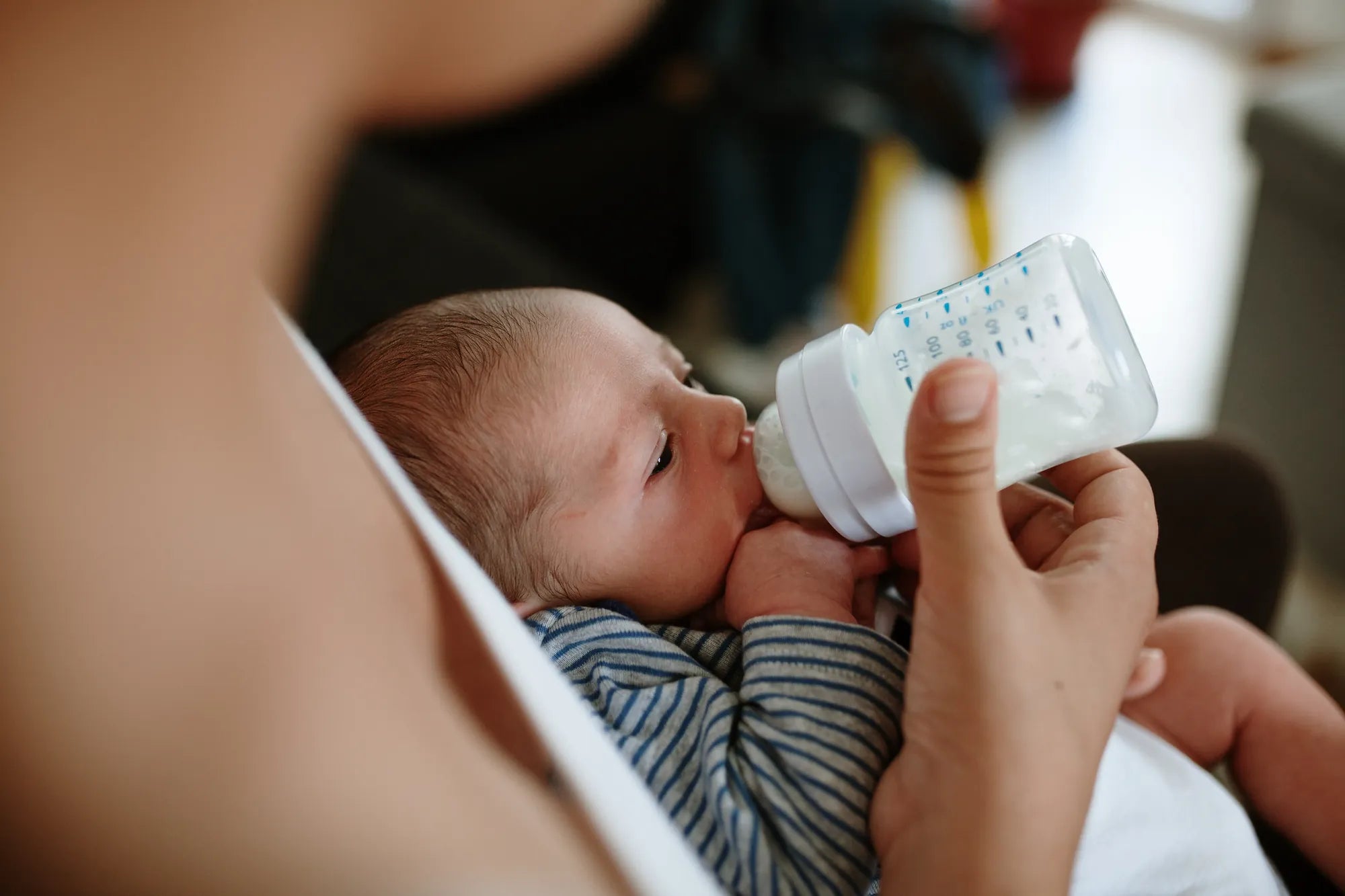Accueil
Pregnancy, Breastfeeding, and Pumping: The Ultimate Guide for Moms
Do You Still Lose Weight If You Pump Breast Milk?

Do You Still Lose Weight If You Pump Breast Milk?
For many new mothers, the postpartum period is a time of adjustment, not just to life with a newborn but also to the changes in their bodies. One common question that arises is, 'Do you still lose weight if you pump breast milk?' The answer is multifaceted, involving factors like metabolism, diet, and physical activity. This article delves into the science behind weight loss while pumping breast milk and offers practical tips for managing postpartum health.
Understanding the Basics of Weight Loss
Weight loss fundamentally comes down to burning more calories than you consume. This principle applies whether you are breastfeeding, pumping breast milk, or neither. However, the act of producing breast milk does require additional energy, which can contribute to weight loss. On average, producing breast milk burns between 300 to 500 calories per day. This calorie expenditure can help new mothers shed some of the weight gained during pregnancy.
The Role of Breastfeeding and Pumping in Weight Loss
Breastfeeding and pumping breast milk both stimulate the body to produce milk, which in turn burns calories. While direct breastfeeding may offer slight advantages in terms of calorie burn due to the physical act of nursing, pumping can also be effective. The key is consistency. Regular pumping sessions can help maintain milk supply and continue the calorie-burning process. However, it's important to note that individual results may vary based on factors like metabolism and overall health.
Diet and Nutrition While Pumping Breast Milk
While pumping breast milk can aid in weight loss, it's crucial to maintain a balanced diet. Consuming nutrient-dense foods ensures that both mother and baby receive the necessary vitamins and minerals. Crash dieting or severely restricting calories can negatively impact milk supply and overall health. Instead, focus on eating a variety of whole foods, including lean proteins, whole grains, fruits, and vegetables. Staying hydrated is also essential, as dehydration can affect milk production and energy levels.
Physical Activity and Weight Loss
Incorporating physical activity into your routine can enhance weight loss efforts. However, it's important to start slowly, especially if you had a cesarean delivery or experienced complications during childbirth. Gentle exercises like walking or postnatal yoga can be beneficial. As your body heals, you can gradually increase the intensity of your workouts. Always consult with a healthcare provider before starting any new exercise regimen.
Managing Expectations and Mental Health
Weight loss is a gradual process, and it's important to set realistic expectations. The postpartum period is a time of significant physical and emotional changes, and focusing solely on weight loss can be detrimental to mental health. Instead, aim for overall well-being. Celebrate small victories, whether it's fitting into pre-pregnancy clothes or simply feeling more energetic. Remember, every mother's journey is unique, and comparing yourself to others can lead to unnecessary stress.
Common Myths About Weight Loss and Breastfeeding
There are several myths surrounding weight loss and breastfeeding. One common misconception is that breastfeeding or pumping will automatically lead to rapid weight loss. While it can help, it's not a guarantee. Another myth is that you need to eat significantly more calories to produce milk. While it's true that your calorie needs increase, overeating can hinder weight loss efforts. It's essential to strike a balance between consuming enough calories to support milk production and maintaining a calorie deficit for weight loss.
Tips for Effective Weight Loss While Pumping Breast Milk
To maximize weight loss while pumping breast milk, consider the following tips:
- Stay hydrated by drinking plenty of water throughout the day.
- Eat a balanced diet rich in nutrients to support milk production and overall health.
- Incorporate physical activity into your routine, starting with gentle exercises and gradually increasing intensity.
- Get adequate rest and sleep, as sleep deprivation can affect metabolism and weight loss.
- Monitor your progress but avoid obsessing over the scale. Focus on how you feel and your overall health.
When to Seek Professional Help
If you're struggling with weight loss or have concerns about your milk supply, it may be helpful to consult a healthcare provider or a lactation consultant. They can offer personalized advice and support based on your individual needs. Additionally, if you experience symptoms of postpartum depression or anxiety, seeking professional help is crucial for both your mental and physical well-being.
Weight loss while pumping breast milk is possible, but it requires a balanced approach that includes proper nutrition, physical activity, and self-care. By focusing on overall health and well-being, you can achieve your weight loss goals while ensuring that both you and your baby thrive. Remember, every mother's journey is unique, and it's important to be patient and kind to yourself during this transformative time.
Partager


